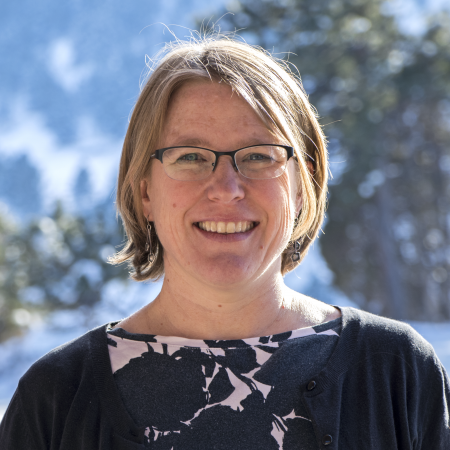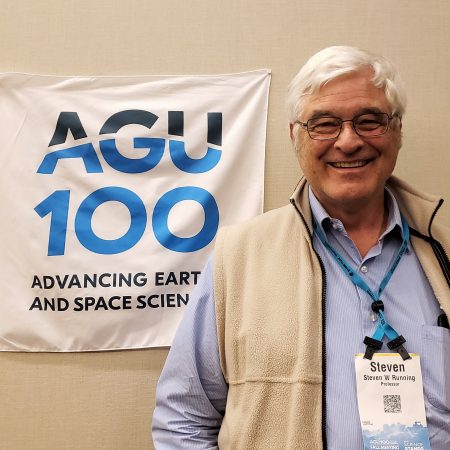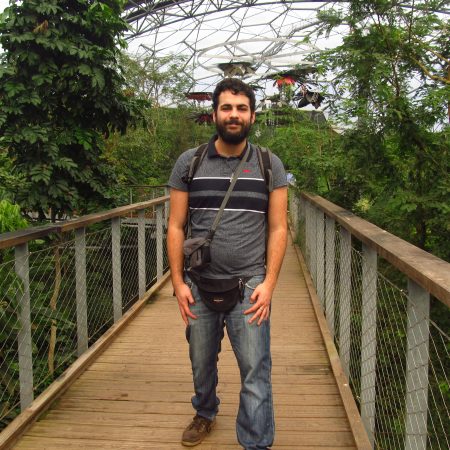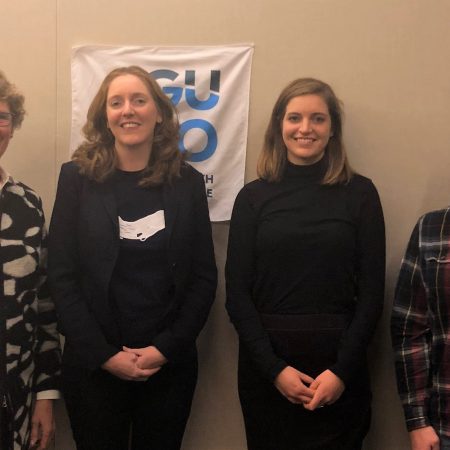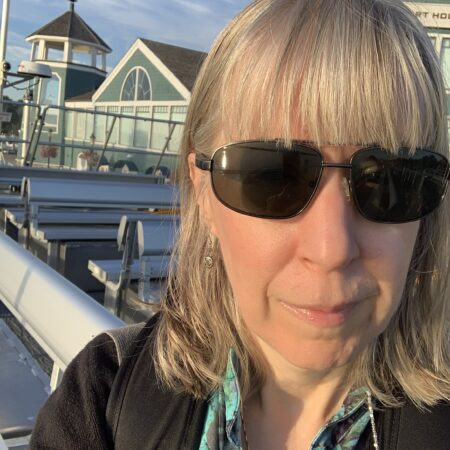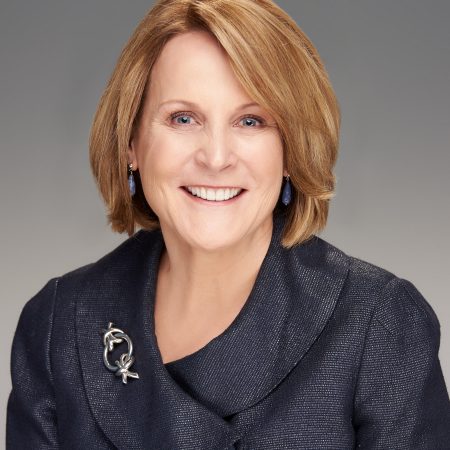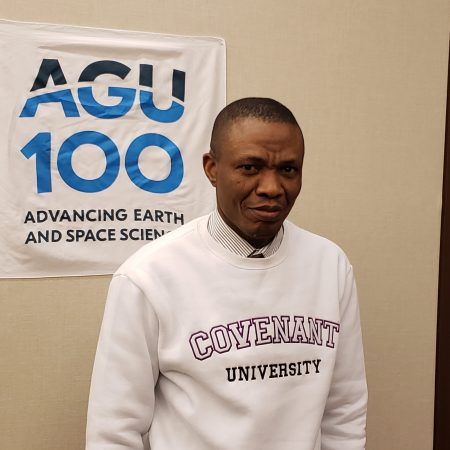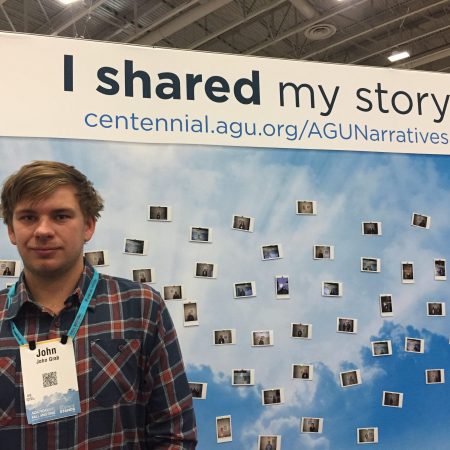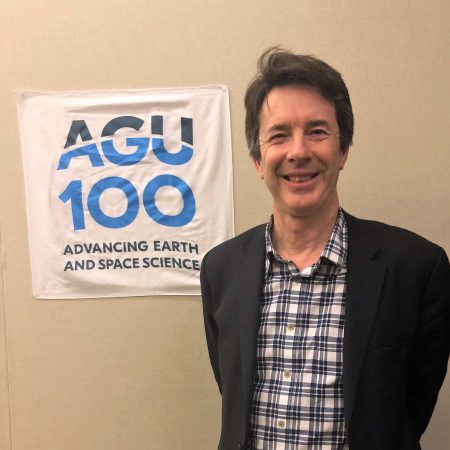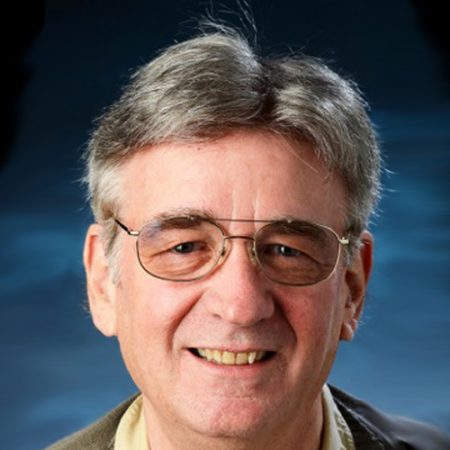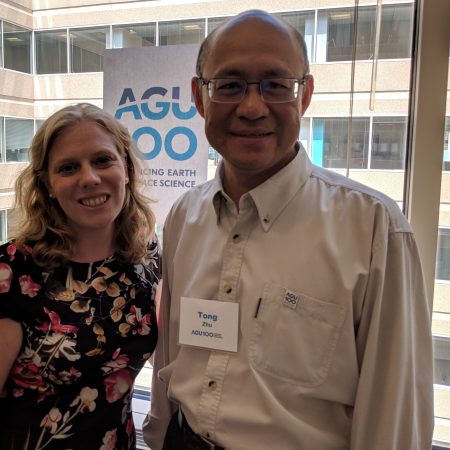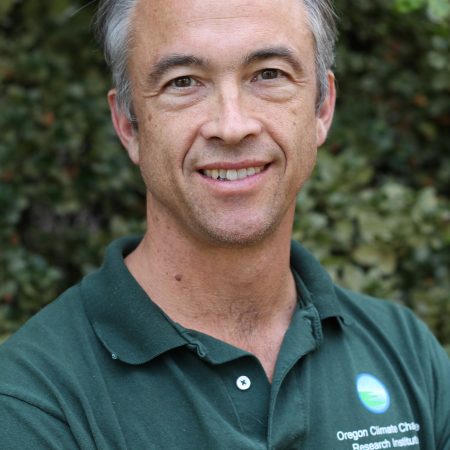Refine
Date Range Clear
Recorded by Clear
Keywords Clear
Partnerships Clear
- No matching terms.
Organizations Clear
- American Geophysical Union 82
- NASA 18
- National Aeronautics and Space Administration 9
- AGU 8
- The American Geophysical Union 5
- 15 more
Places Clear
Languages Clear
Initiatives Clear
- No matching terms.
Kristin Pratscher might have only recently received her Bachelor’s degree but she already has plenty of experience in her field of geology. From a field camp in Turkey to being part of the Summer of Applied Geophysical Experience (SAGE) program...
Paul Stackhouse is a sun chaser, but in his case it means measuring the surface radiation budget. This means figuring out how much sunlight gets to the surface of the planet, and takes a deep understanding of factors like cloud...
Through his work with SERVIR, Ashutosh Limaye could be described as one of Earth’s watchdogs. The project scientist at the Marshall Space Flight Center’s job is to take NASA satellite data back down to the Earth and help people use...
Alan Gorchov Negron and Colten Petersen, University of Michigan, share their stories of becoming scientists, and their hopes for their continued research and involvement in geosciences. What is the role of an earth scientist? What is the role of climate...
Rosaly Lopes is a planetary geologist at NASA’s Jet Propulsion Lab. She discovered seventy-one new volcanoes on IO, for which she was recognized in the Guinness Book of World Records. She uses her research into the surface of other planets...
Thomas Wagner, NASA's Program Scientist for the cryosphere, discusses how his life has developed to study the Arctic and Antarctic. Even though as a student he initially found himself bored by studying glaciology, he soon discovered a passion for polar...
Elizabeth Schaeffer hasn’t followed the most straight-forward route into the geosciences but that’s allowed her to discover the field she most wants to study. She’s a non-traditional undergraduate studying applied geology and talks about recent internships she’s done that have...
Richard Stolarski, research professor shares the journey of his involvement with the movement to address ozone depletion. He discusses how a multi-disciplinary team of scientists came together to heal the ozone layer, and how the world came together with the...
Frank Schwing oversees the science information division at NOAA and is particularly proud of his transition from doing science to becoming a manager of science. He says, “Working for a federal agency, one of the demands is to make [the...
AGU Virtual Poster Showcase Winner Interview of Prudence Crawmer, studying Environmental Studies and Geography, at Pikes Peak Community College
Bernard Chovitz has seen it all when it comes to geodesy. From before it was an official field in the early 40s to being one of many AGU sections today, Bernard talks about how the field and science in general...
Susan Bates has always been interested by the physical world and especially the ocean. She remembers standing on the beach as a kid in North Carolina wondering where the waves came from. Now, she gets to predict what the ocean...
Stephen Running, an Emeritus Regent's Professor at the University of Montana, shares about his work with NASA studying the global ecosystem from space. Trying out a microscope at a young age ironically led him into a lifetime of looking at...
AGU Virtual Poster Showcase Winner Interview with Samuele Papeschi, recent Ph.D. graduate from Pisa, Italy.
What starts as a conversation about arctic change is actually an all-encompassing discussion about career growth, patience, and personal growth. Walt Meier, National Snow, and Ice Data center, introduces us to Jackie Richter-Menge, US Arctic Research Commission, who has spent...
Dr. Lin Chambers is the Deputy Director of Science Activation at NASA Headquarters, and she spends her time there sharing NASA’s science with learners in local communities across the country. Lin started at NASA after her freshman year of college...
Alice Hill talks about her work at Stanford University's Hoover Institute on mitigating risk from natural hazards. She discusses her work in the Obama Administration running climate change programs for the Department of Homeland Security. She also worked at the...
Philips Aizebeokhai talks about the path his career has taken, turns and all. Although he started out working in the oil and gas industry, he found himself drawn to academia and the chance to be excited every day through his...
John Booker Grab grew up in New Mexico and remembers, at the age of 8, running out the back door into the Santa Fe National Forest to go and collect fossils. He then went on to study at Montana State...
Chris Ballentine, University of Oxford, discusses his work as "helium hunter," seeking global reserves of Helium, significant as a natural resource-limited in its scope. Chris discusses geopolitics and the need for the market to drive the search for helium which...
In begin in 1979, when Margaret Kivelson, UCLA, was part one of three women presenting a talk in which Fran Bagenal, University of Colorado Boulder, was sitting in the audience. They have been space scientists and collaborators for many years...
Michael King is a Senior Research Associate in the Laboratory for Atmospheric and Space Physics at the University of Colorado. He previously worked at NASA for 3 decades in a variety of roles, including Senior Project Scientist of NASA’s Earth...
David Crisp, senior research scientist at NASA, recounted his adventures, from going from a physics education major who had a paper on Venus winds published by Carl Sagan to a doctoral student at Princeton to helping fix Hubble. He described...
Tong Zhu atmospheric chemist and university professor shares his experiences studying air pollution and its impacts on human health. Reflecting on how past discoveries influence solutions and how those solutions impact government policy. He shares stories about his work for...
Is it a good time to be a climate scientist? Yes, says Phil Mote, Director Oregon Climate Change Research Institute at Oregon State University. Predictions over the past 40 years are coming true and while some look at that with...
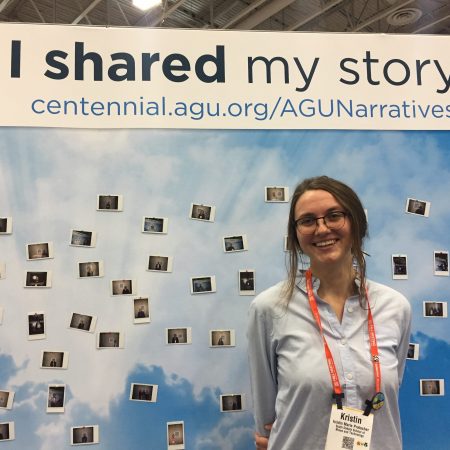
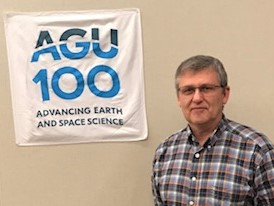
![“[Better satellite monitoring] will improve our ability to bridge the gaps between the haves & have nots." interview with Ashutosh Limaye](https://archive.storycorps.org/uploads/2019/02/181213_Limaye-450x450.jpg)
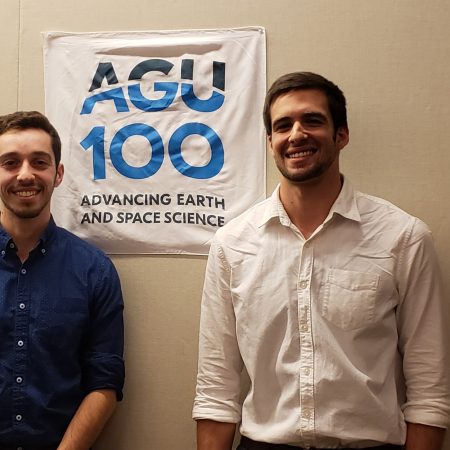
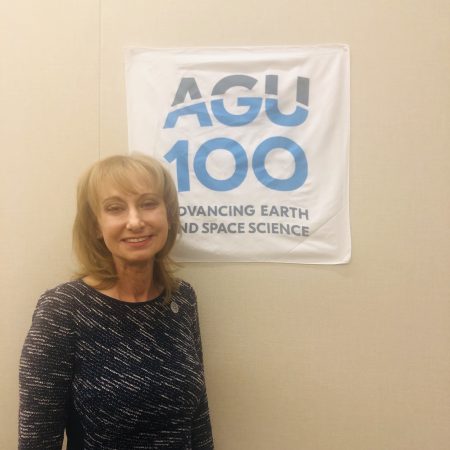
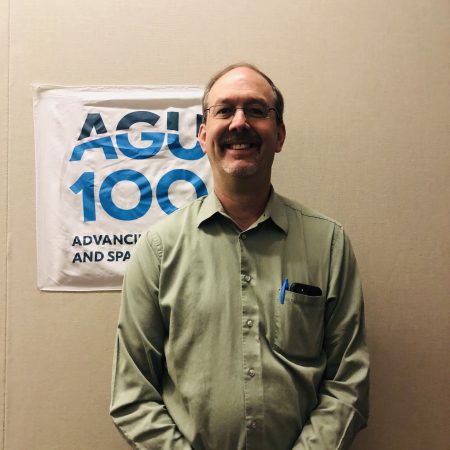
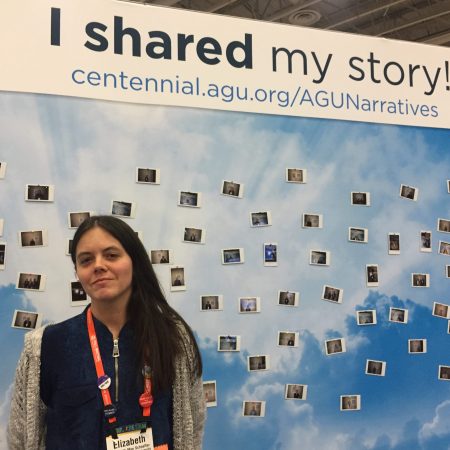
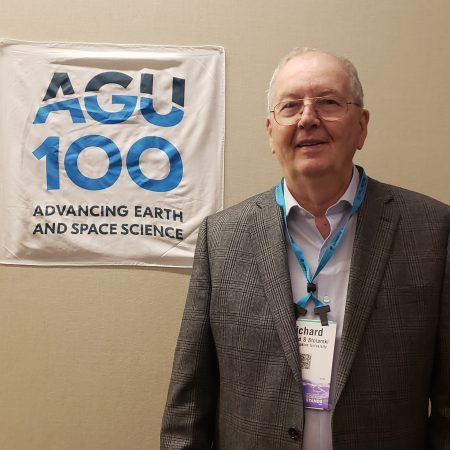
![“We've never had a [unified ocean] policy until the Obama administration; it was quite satisfying work .” An interview with Frank Schwing](https://archive.storycorps.org/uploads/2019/08/181212_Schwing-450x450.jpg)
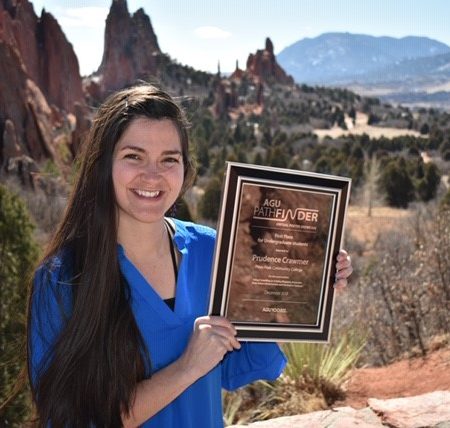
![“I am very proud to be in the same issue [of Time Magazine] with Marilyn Monroe on the cover.” An interview with Bernard Chovitz](https://archive.storycorps.org/uploads/2019/07/181213_Chovitz_Booth-450x450.jpg)
